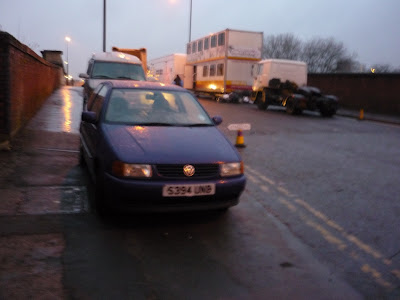WTF on pinkbike.com
via LazyBicycle
A migrant to the area surveys the prospects for Manchester becoming a cycling city...










With 26% of all traffic movements done by bike (by far the highest proportion in Europe), the Dutch are the bicycle champions of the world. Our country has a bicycle-friendly infrastructure that promotes a healthier, more active lifestyle. Without wishing to boast, we can genuinely say that our country is a veritable trendsetter when it comes to sustainable transport. The Netherlands is a wealthy country in which 1 in 2 people owns a car. Bicycle use, however, is higher than anywhere else in the world.
So how did we do it?
Cycling has always been popular in the Netherlands. Since the 1960s, however, car-ownership and car-usage have increased significantly and bicycle usage has fallen, reaching an all-time low in 1978. Cities began to struggle with congestion, air pollution, a poorer quality of life and many traffic accidents. As a result, the government decided to develop a large array of measures to promote cycling, walking and traffic calming, such as:
- Reducing car access to city-centres and create car-free areas;
- Making parking in city-centres more expensive;
- Constructing cycle paths and reducing road space for cars;
- Facilitating cycling through cycle network planning, road design, signalling, parking and enforcement;
- Reducing maximum speed on the majority of urban roads to 30 km/h or less;
- Promoting cycling to encourage the use of bikes and discourage car-use.
It worked!
Bicycle use in cities increased. In 1975, 25% of all non-walking journeys in Amsterdam involved a bicycle. By 1995, this had increased to 35%. We also managed to improve the safety of cycling and traffic fatalities fell from 3,200 in 1972 to 700 in 2010.
The advantages
- You travel 10% faster in cities by bike than by car
- The quality of life in cities improves
- Traffic congestion reduces
- Local, city economies improve
Still we continue to develop innovative solutions that come forward to the needs and aspirations of people and contribute to our asociety. We create up to more than 20,000 bicycle parking places at several train stations, we develop cycling highways between our cities, we sell 1.2 milllion bikes per year at on average €750 per bike, we have the most successful public bike scheme in the world and prove that cycling inclusive planning is a key element towards road safety. Our manufacturers, consultants, engineers, planners, designers, lobbyists, researchers, governors stand in a tradition of decades of international exchange and cooperation on cycling as professionals on all continents, from Chile to Lithuania, India to Uganda, the United States to Brasil, Ireland to Turkey, the UK to Japan, can confirm.



